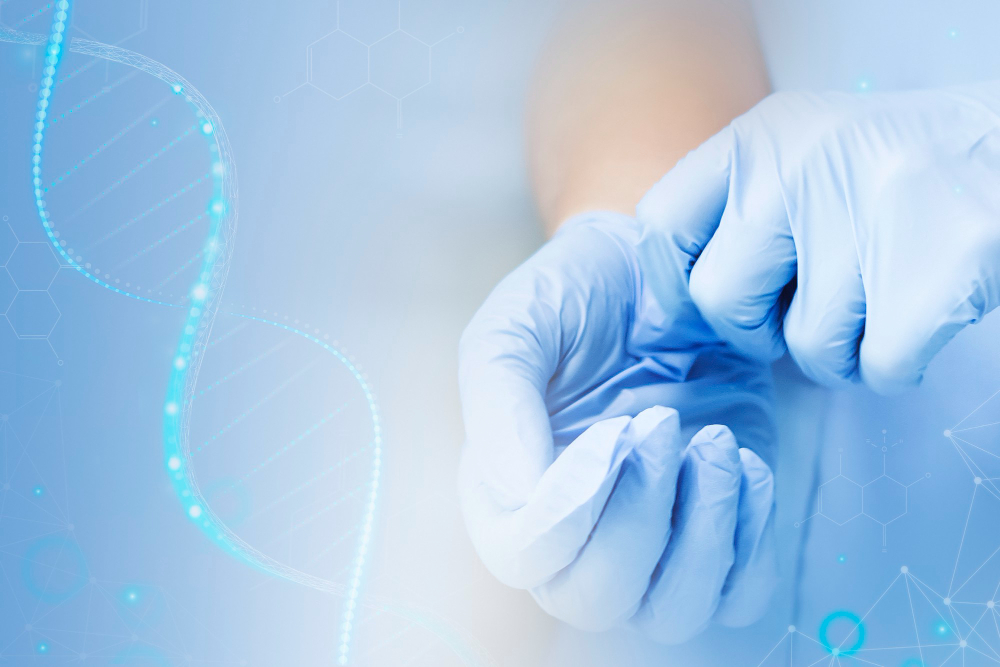Gene therapy has generated significant attention in recent years, especially for its potential to treat various genetic disorders. For children with specific neurodevelopmental conditions, it offers an exciting opportunity. By correcting genetic mutations, this therapy could improve brain function and developmental outcomes, changing the treatment landscape for these children.
In this blog, we will explore the role of gene therapy in improving neurodevelopmental outcomes, how it affects pediatric care, and its growing impact on medical practices.
What Is Gene Therapy?
Gene therapy is a treatment that involves altering the genetic material of a person’s cells to address or prevent disease. It can be done by adding, removing, or repairing faulty genes. Unlike conventional treatments that only manage symptoms, it targets the underlying cause of the disorder. This makes it especially promising for children suffering from conditions caused by genetic mutations that affect brain development.
For children with neurodevelopmental disorders, gene therapy can provide a direct approach to improving brain function by correcting the genetic issues that interfere with proper development.
How Gene Therapy Helps Neurodevelopmental Disorders
Neurodevelopmental disorders, such as autism and intellectual disabilities, are often the result of genetic mutations that disrupt brain function. These disorders can hinder a child’s cognitive abilities and delay developmental milestones. Gene therapy aims to correct these mutations, potentially restoring normal brain activity and improving developmental outcomes.
Administering gene therapy early in a child’s life could significantly impact their cognitive development. By targeting the root cause of the disorder, gene therapy may help children reach important developmental milestones that they otherwise might not achieve.
Key benefits of gene therapy for neurodevelopmental disorders include:
- Targeting the cause: It addresses the genetic issue rather than just alleviating symptoms.
- Early intervention: Administering it early could lead to better developmental outcomes.
- Long-term benefits: If successful, it could offer lasting improvements with fewer ongoing treatments.
How Gene Therapy Works
The process of gene therapy involves inserting healthy copies of genes into a patient’s cells to replace defective ones. This can be done using tools like viral vectors or CRISPR technology, which are advanced gene-editing techniques. Once the healthy genes are delivered, they start working in the affected cells, potentially reversing the genetic issue.
For children with neurodevelopmental conditions caused by specific genetic mutations, this may offer a way to correct the problem and improve brain function. These therapies can sometimes be combined with other treatments like therapy or rehabilitation to maximize their effects.
Advances in Gene Therapy for Children
Although it is still in its experimental stages for many conditions, some early results from clinical trials have been promising. For instance, trials for disorders like Rett syndrome and Fragile X syndrome have shown improvements in cognitive function and behavior in children after treatment with it.
Although this isn’t suitable for every neurodevelopmental disorder, it has given families hope for conditions that were previously difficult to treat. As more research is conducted, this therapy will likely expand to treat a broader range of genetic conditions.
Pediatric Care in Dubai: Accessing Gene Therapy
In pediatric care in Dubai, healthcare providers are embracing new treatments like gene therapy. Dubai is known for its innovative approach to healthcare, incorporating the latest medical advancements into its offerings. As genetic testing and personalized treatments become more accessible, this could become a vital part of the treatment options available to families.
In this region, healthcare professionals are working closely with global researchers to ensure that families benefit from cutting-edge therapies. It holds the potential to provide life-changing results for children with genetic disorders, and Dubai is positioning itself as a key player in providing such services.
Challenges and Considerations
While this offers tremendous promise, there are still some hurdles to overcome. One of the primary concerns is safety. Researchers are carefully studying the long-term effects of this to ensure that it does not cause unintended side effects.
The cost of these treatments is another concern. Gene therapy can be expensive, and not all families may be able to access it. Additionally, each child’s condition is unique, meaning that not all children will benefit from this therapy in the same way.
Despite these challenges, ongoing research and technological advancements are expected to address many of these issues, making this more accessible and effective in the future.
The Future of Gene Therapy
The future of this holds great promise. As technology advances, gene-editing tools like CRISPR are becoming more precise, and treatments are becoming more effective. Researchers are optimistic that the scope this will expand, allowing it to treat even more neurodevelopmental disorders.
Ongoing studies aim to refine these therapies, making them safer, more efficient, and accessible to a wider range of patients. As the field evolves, this could become a standard part of treatment for children with genetic conditions that impact brain development.
Conclusion: Gene Therapy and Pediatric Care
In conclusion, gene therapy offers a groundbreaking solution for children with neurodevelopmental disorders. By targeting the genetic causes of these conditions, it holds the potential to restore normal brain function and improve long-term development. Although challenges remain, the future of this looks bright, particularly for children who have limited treatment options today.
With the continued growth of pediatric care and advancements in gene-editing technologies, more children will be able to benefit from these innovative therapies, giving them the chance to live fuller, healthier lives.



